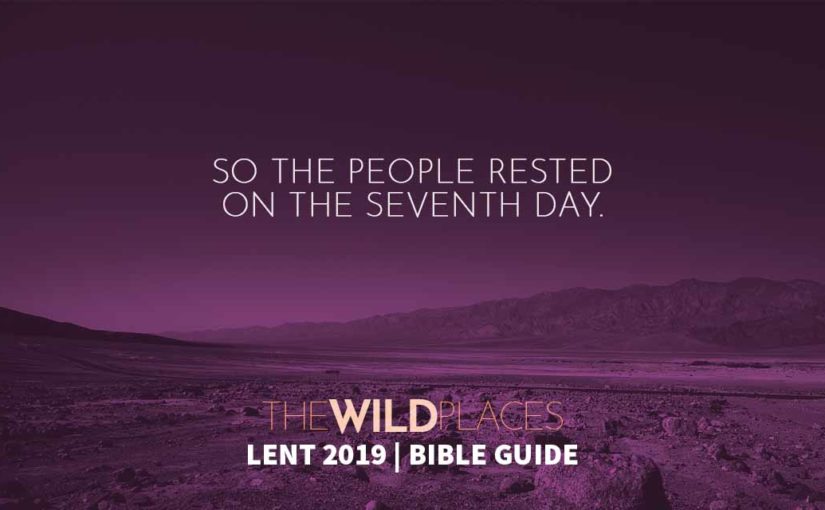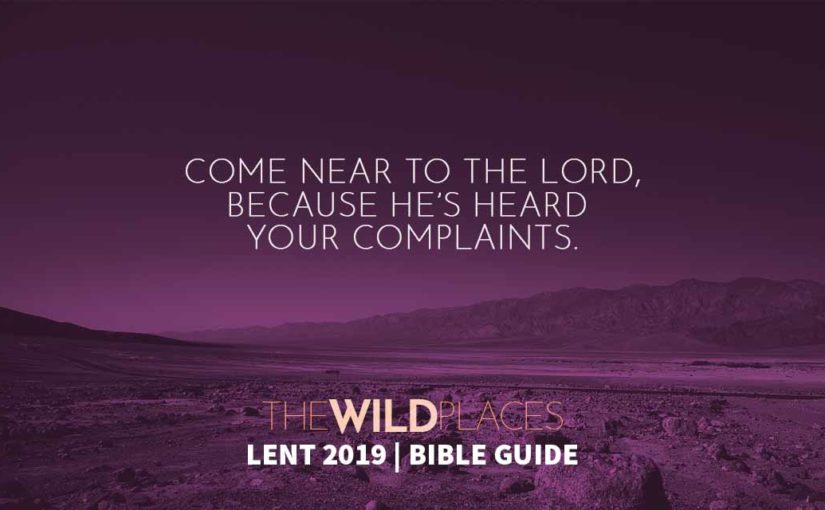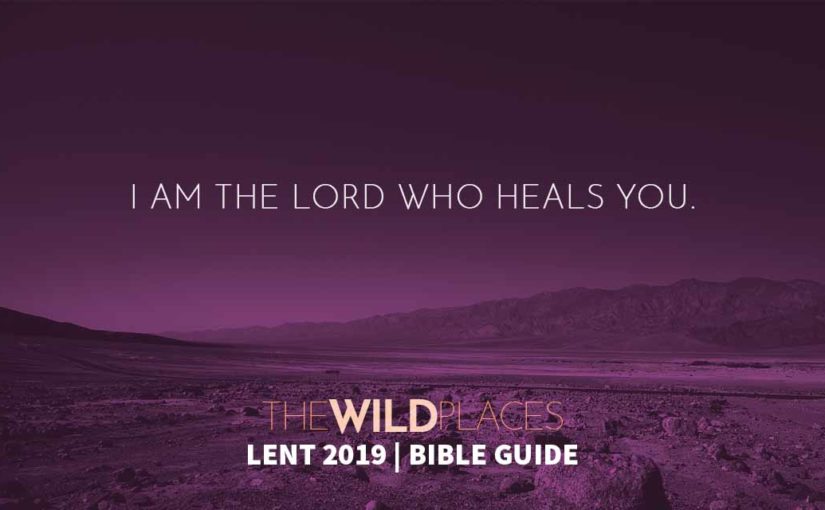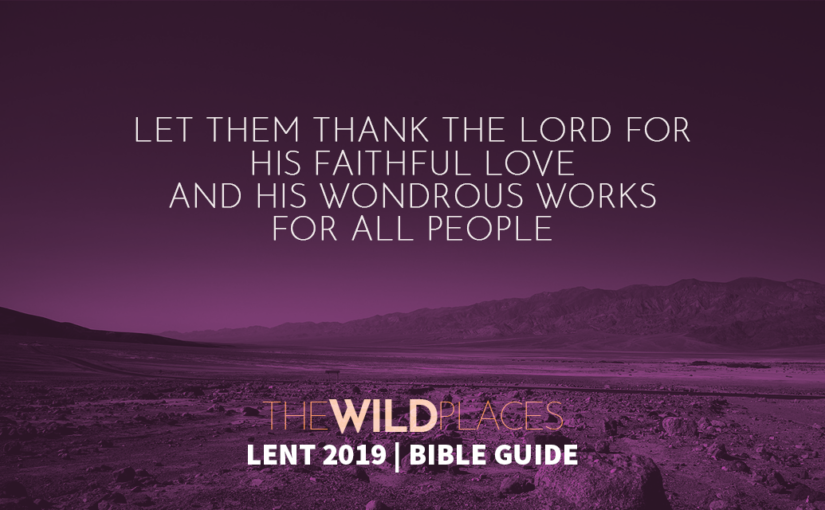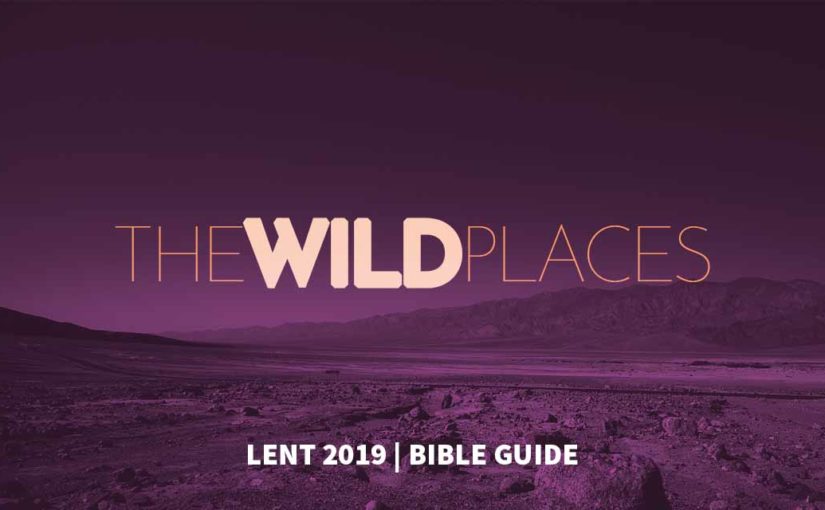Thursday, March 14
Exodus 16:13-30
13 In the evening a flock of quail flew down and covered the camp. And in the morning there was a layer of dew all around the camp. 14 When the layer of dew lifted, there on the desert surface were thin flakes, as thin as frost on the ground. 15 When the Israelites saw it, they said to each other, “What is it?” They didn’t know what it was.
Moses said to them, “This is the bread that the Lord has given you to eat. 16 This is what the Lord has commanded: ‘Collect as much of it as each of you can eat, one omer per person. You may collect for the number of people in your household.’” 17 The Israelites did as Moses said, some collecting more, some less. 18 But when they measured it out by the omer, the ones who had collected more had nothing left over, and the ones who had collected less had no shortage. Everyone collected just as much as they could eat. 19 Moses said to them, “Don’t keep any of it until morning.” 20 But they didn’t listen to Moses. Some kept part of it until morning, but it became infested with worms and stank. Moses got angry with them. 21 Every morning they gathered it, as much as each person could eat. But when the sun grew hot, it melted away.
22 On the sixth day the people collected twice as much food as usual, two omers per person. All the chiefs of the community came and told Moses.23 He said to them, “This is what the Lord has said, ‘Tomorrow is a day of rest, a holy Sabbath to the Lord. Bake what you want to bake and boil what you want to boil. But you can set aside and keep all the leftovers until the next morning.’” 24 So they set the leftovers aside until morning, as Moses had commanded. They didn’t stink or become infested with worms. 25 The next day Moses said, “Eat it today, because today is a Sabbath to the Lord. Today you won’t find it out in the field. 26 Six days you will gather it. But on the seventh day, the Sabbath, there will be nothing to gather.”
27 On the seventh day some of the people went out to gather bread, but they found nothing. 28 The Lord said to Moses, “How long will you refuse to obey my commandments and instructions? 29 Look! The Lord has given you the Sabbath. Therefore, on the sixth day he gives you enough food for two days. Each of you should stay where you are and not leave your place on the seventh day.” 30 So the people rested on the seventh day.
Points of Interest
- The miracle of this wilderness begins with bread and meat, but especially bread. There’s more than enough for each person, a whole omer (which is about eight cups worth – that’s a lot of bread)! The root of this magical food means “what?” in Hebrew; I love that they name this bread “what-is-this.” So there is food for hunger of the belly and mystery and beauty for huger of the soul. Lest we forget, our stomachs and our hearts, our bodies and our imaginations both need feeding.
- Another part of the magic of God’s food is how it interacts with space and time. Aggressive gatherers can’t overfeed, and folks that struggle to keep up – the physically disabled, the young, the old, the easily distracted – still have enough. And this food’s sell-by date is always today. It can’t be stored up for the future. How much of our life is robbed by our obsession with the future? God’s interested in nudging us back to today again and again. This is the day in which we’re alive. This is the day.
- The other miracle of this wilderness is called the Sabbath, which means rest. Rest has got to be one of the least strategic activities in wild places. Out of control? Lost in the wilderness? Overwhelmed? In chaos, duress, or confusion? To not do anything, to simply rest seems counter-intuitive. But rest is part, maybe a seventh part, of what people in all places – wild places included – need. In this story, God bends the laws of biology and physics to make this point, and to invite people to walk into the gift of rest.
A Direction for Prayer
Pray that the people of your church will learn to be people who know how to rest, that in the middle of a stressed out, under-slept, over-caffeinated, busy world, you would all embody the joy of peace.
Spiritual Exercise of the Week
Honest Prayer and Requests for Encounter, Discovery, and Rescue – This week, you are invited to name a place in your life where you are out of your element, beyond your resources, or out of control. Tell God about this. How is it that you want to experience God’s faithful love with you? What do you hope to learn in this season? How is it that you would like God to rescue you?


